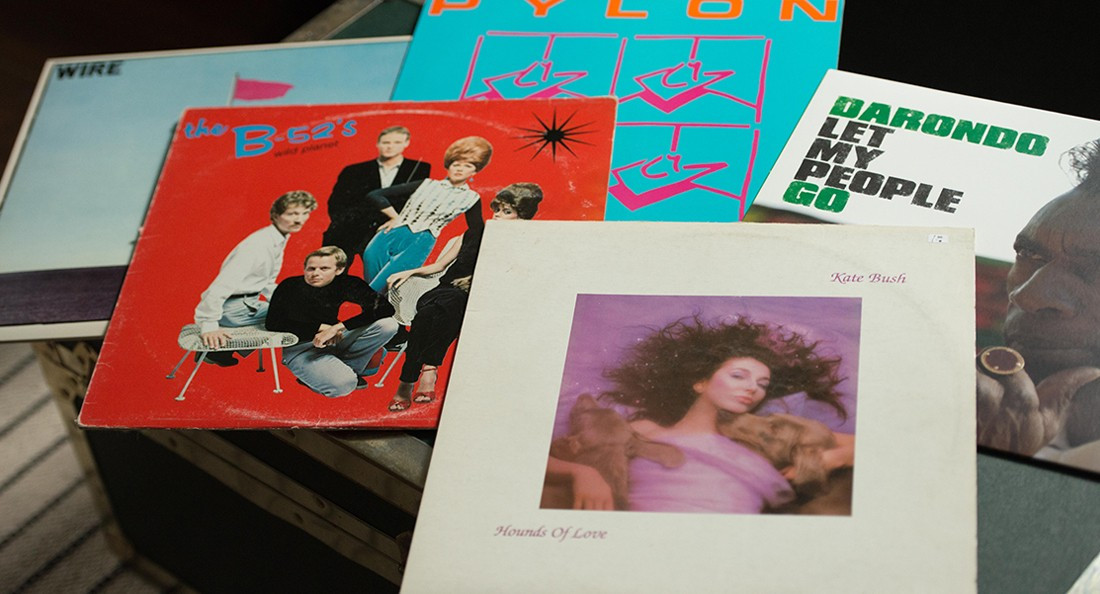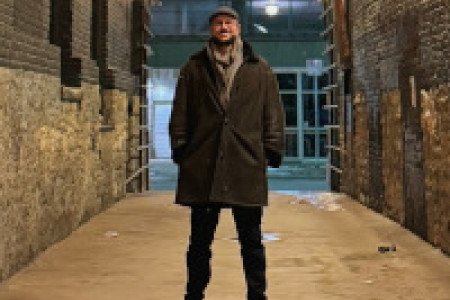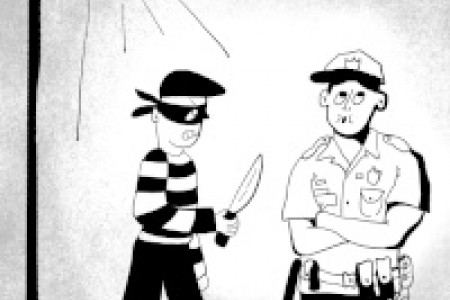Analog art’s not dead?
Old-school methods in the so-called digital age
With the increase in quality and affordability of digital media, many people working in film and music have pivoted away from physical media, opting to photograph or record digitally and to release through online streaming services. But analog art isn’t dead yet. A number of Winnipeg artists and professionals are still making and releasing art by hand.
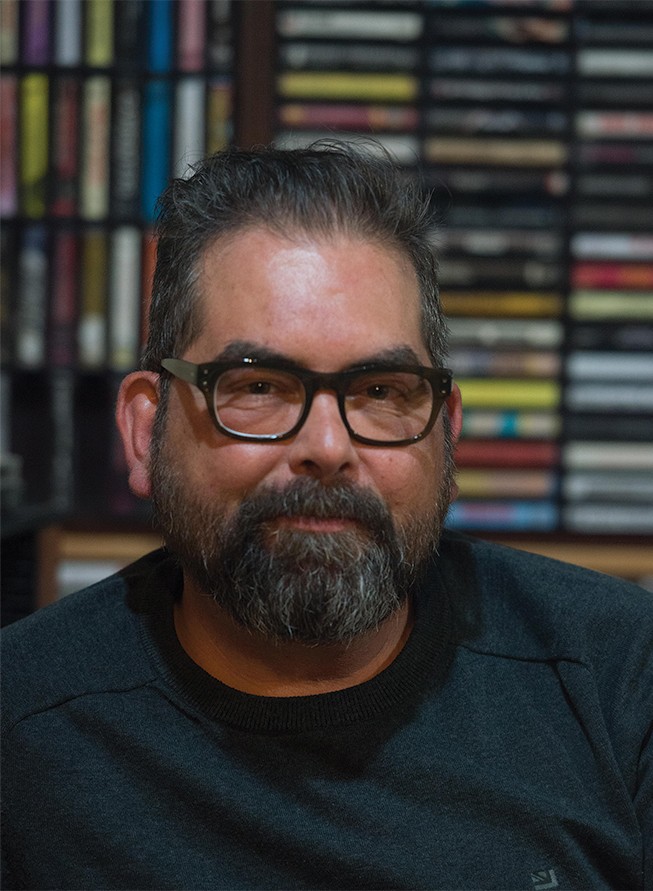
Chris Jacques / Dub Ditch Picnic.
The Dub Ditch Picnic record label is the brainchild of Chris Jacques. A collector of music for 35 years, Jaques was motivated by fond childhood memories to start working with cassette tapes. He had so much fun working on the project that he never let go.
While he has been involved with a number of smaller labels, the consistent one has been Dub Ditch Picnic. To date, Jacques has released over a hundred titles on cassette.
“Tapes are easy to produce, and for a variety of reasons. You don’t have to worry about the sound quality. I mean, you do, but you don’t ... it’s the easiest, cheapest format ... you don’t have to worry about anything popping out, how much data you’re using, you just pop that in and make a 90-min tape, so an hour-and-a-half of anything at any given time. I think it is a real hands-on format that you can control and don’t have to worry about needles, skipping. I guess you do have to make sure it doesn’t come unspooled. I mean, there is always something. For the most part, I keep coming back to them.”
Jacques has recorded everything from noise and drones to experimental to psychedelic rock, punk rock and underground stuff. Currently, Dub Ditch Picnic is working on a number of archival projects with labels and bands like Blue Circle Records from Austin, Texas and a band called FWY! (pronounced “freeway”). The archival projects include taking tapes to digital and digital to tape.
FWY! is taking all of their digital format releases, which include a number of songs only released online on Bandcamp or other online streaming services, and making a hardcopy recording.
Jacques says you can start a label if you have two tape decks. However, producing purely analog music is difficult. There could be a release of a hundred tapes in the span of an evening, while an artist must design and print J cards or screen-print directly on the cassettes.
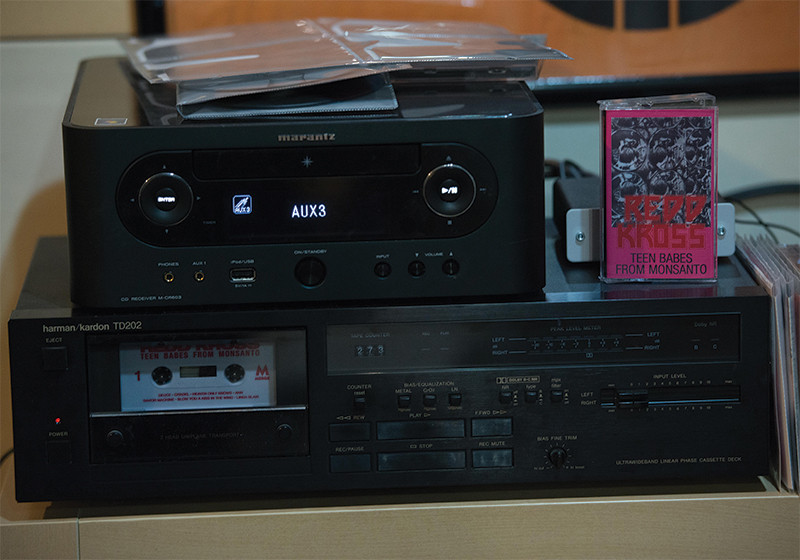
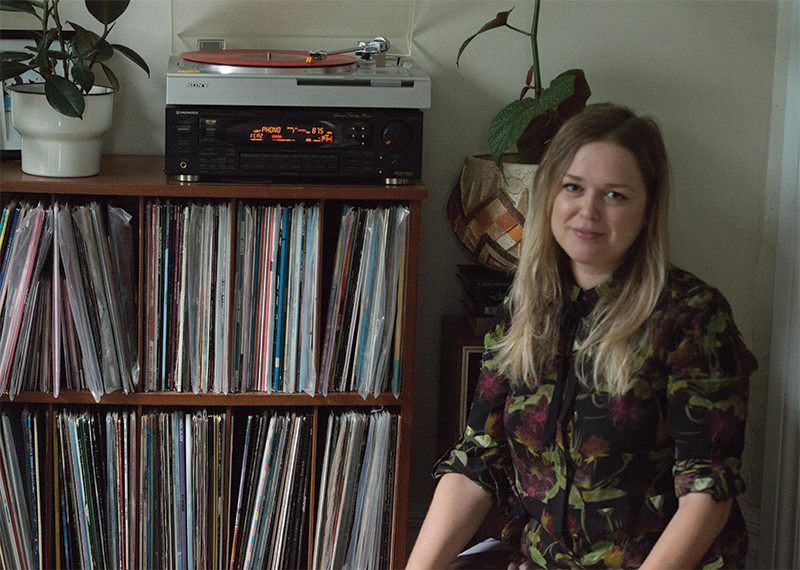
Lauren Swan / DJ, The Vinyl Salon and Small Talk Tuesdays @ The Good Will Social Club
Lauren Swan is an analog DJ who plays vinyl records. An avid collector of vinyl since childhood, Swan loves the thrill of the hunt.
“What I like about vinyl is the touch, the sound, the feel and the smell. It’s like going into a used book store. It’s not like an e-reader. It’s very tactile, and I love that. And I love the hunt for records and trying out new records. There’s that element of challenge to it, as opposed to being able to access anything you want on the internet,” she says.
“You start out with a genre or band in mind, and maybe there is a song on the B-side that has never been released. It’s super killer, and you would have never heard it if you hadn’t bought the vinyl.”
Swan started playing records as part of DJ collective The Vinyl Salon about six years ago. The Vinyl Salon was started by a group of friends.
“It started out as a way for women and non-binary folk to appreciate and showcase their record collection,” Swan says.
“A lot of the time, you go over to someone’s house, and it’s always a guy with his record collection, and he’s picking the records, and it was a way to showcase our collections and build that confidence” as a way to address the gaps in the music industry.
“It was really like a book club,” Swan says. “It was private, we changed houses, and each session was based around a theme. People would bring a record or two from their collection that fit that theme, and from there, somebody had heard that we were doing that and asked if we wanted to play a gig. So we did.”
Swan was also one of the creators of Small Talk Tuesdays. Due to living in a house she believed was haunted, she would spend Tuesday evenings at the Good Will Social Club and hang out with bartender Mike Requiema. At first, it was just sharing songs that they were interested in, but then it graduated to records, and thus Small Talk Tuesdays was born.
“It was supposed to be something casual between us, and one of the owners of the Good Will thought it would be a good idea to actually promote it as a thing ... that’s how Small Talk Tuesdays happened.
It was “a weekly record night that was really chill. Sometimes people danced, but we weren’t on stage. We would hang out beside the bar, and people would come hang out, have a drink and listen to records. We would have these guests come and bring stuff from their (collections),” Swan says.
While Small Talk Tuesdays is on hiatus due to life and other projects, The Vinyl Salon still plays the occasional gig around town.
Heidi Phillips / Analog film artist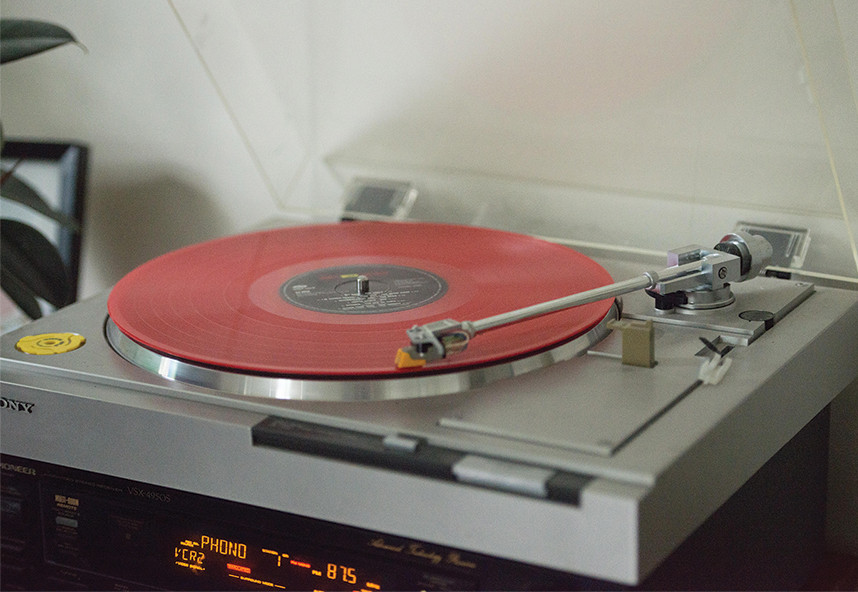
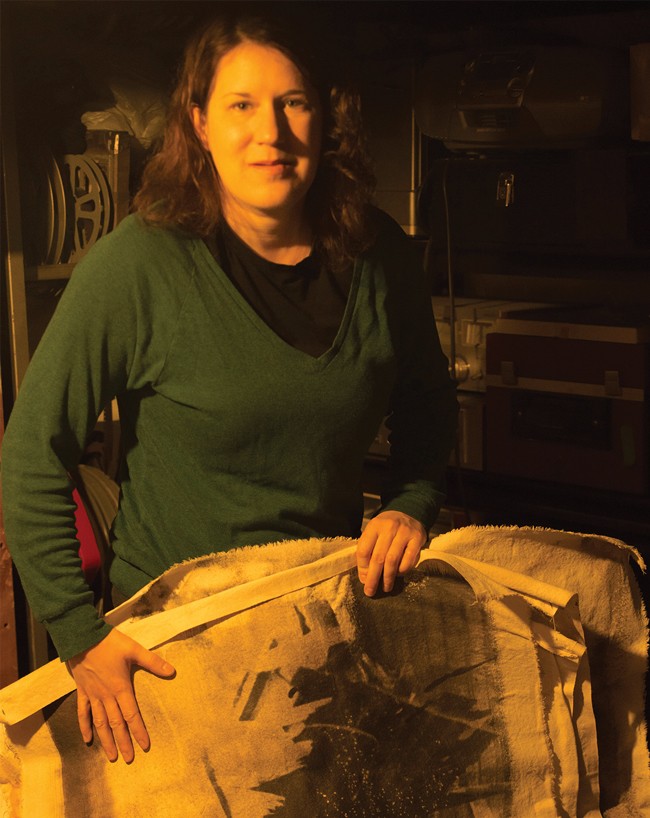
Heidi Phillips is an artist who works with Super 8, 16mm and 35mm film. She uses found footage and experiments with it in the darkroom.
Phillips got hooked on film 10 years ago when she took a workshop about Super 8 film with filmmaker Solomon Nagler. Phillips enjoys film because of the “tactility of the process and textures created by images, (and that) these appealing images were welcomed along with a break from the computer.”
While living in Winnipeg now, Phillips got her start in Europe, where she attended school.
“The first international screening I attended of my work, Isolating Landscapes, was at the European Media Arts Festival in Germany. The screening of shorts was on the programmer’s birthday, so he just picked his favourite films. I was thrilled to enjoy the art openings and festivals in Europe, as they have fancy hors d’oeuvres and free drinks,” she says.
Phillips gets a lot of her materials adventuring around to visit auctions, thrift stores and dumpsters.
“These images can be the impetus for a new project,” she says.
According to Phillips, “the darkroom is a magical place. It can be both frustrating and exhilarating at the same time. There are always new methods to explore and surprises to be revealed before your eyes. This is not without (failed) experiments along the way.”
While Phillips went to school for digital film and 3D animation, she would like everyone to know and remember that “because of the push for everything to be digital, (she thinks) that people forget how many options there are to create moving images by hand. Cel animation and found footage can result in a richer aesthetic and more intent from the artist, rather than relying on immediate tools that might render an image with little meaning.”
Ryan Steel / Filmmaker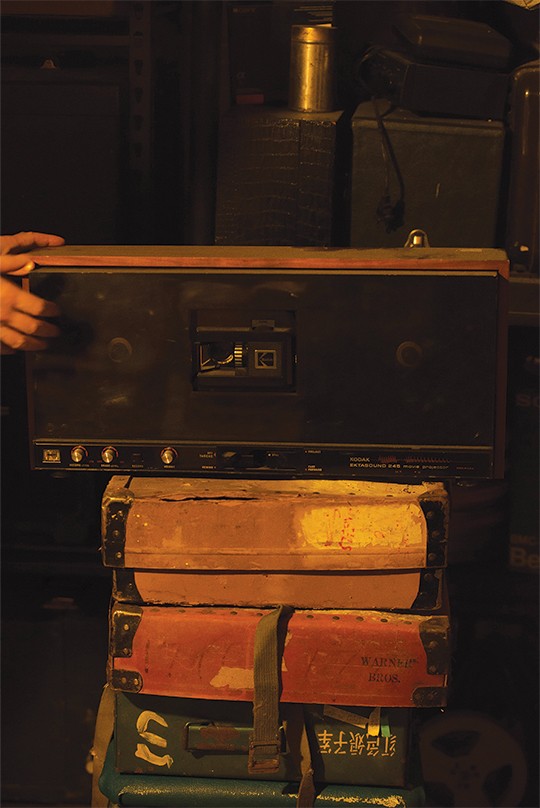
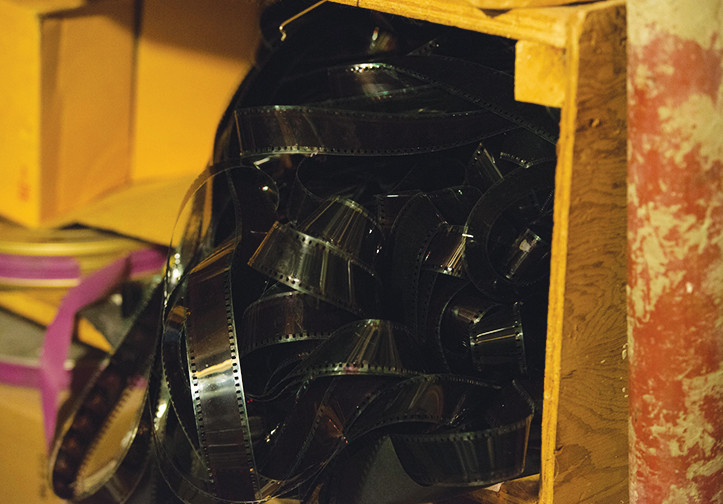
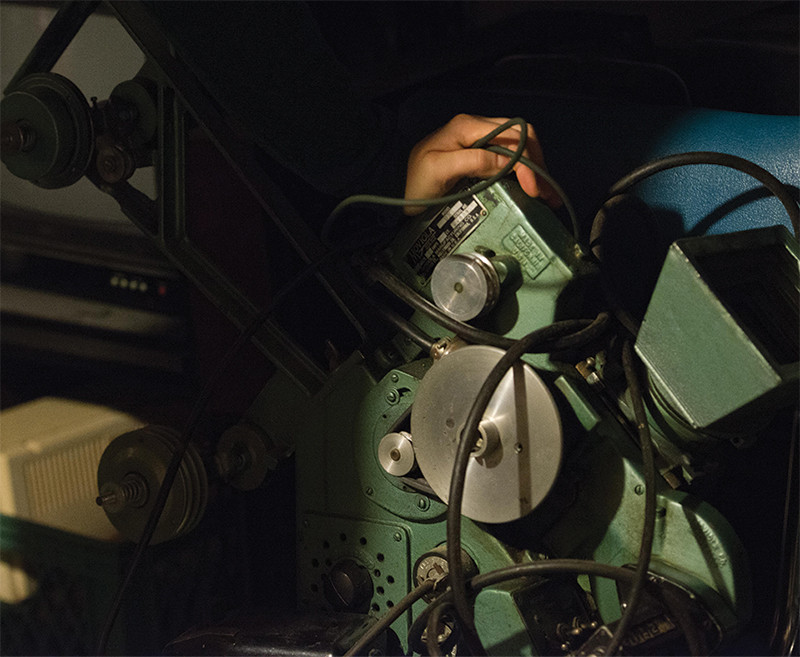
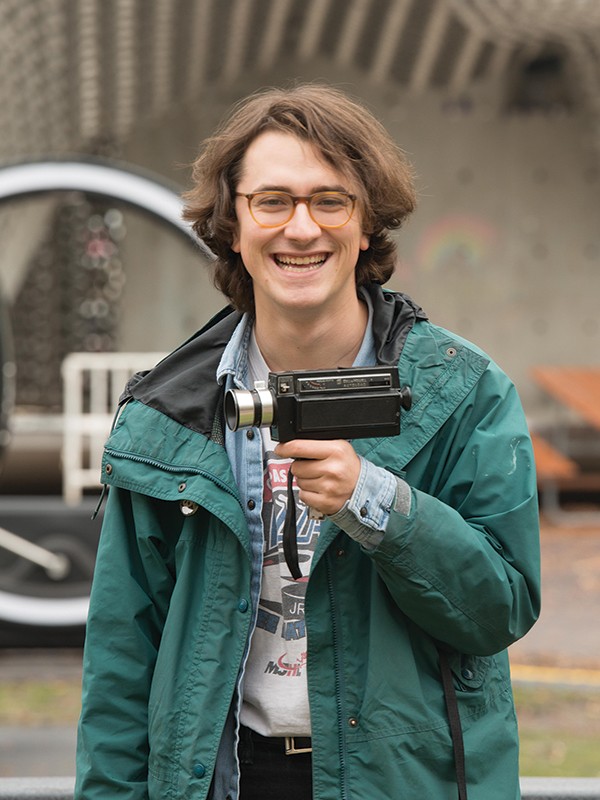
Ryan Steel is a filmmaker who uses 16mm film, Super 8, disposable cameras and VHS. He is known for a documentary about Peter Nygard filmed on Super 8 and hand-developed for the 48 Hour Film Contest, as well as a recent music video for Begonia on VHS.
At age 12, Steel learned how to “hand-develop Super 8mm film at the Winnipeg Film Group (from filmmaker) Mike Maryniuk. Mike is one of my great inspirations for the mixed-media aesthetic of my films. I started getting extremely into the history of the Winnipeg Film Group when I was a teenager. I watched everything I could that was associated with the film group, and there’s a vast undercurrent of filmmakers using outdated equipment,” he says.
“Ever since then, I try my best to replicate those films, but I always fail, and it comes off in its own way, I think.”
Steel’s first public unveiling of work was in 2017 at Nuit Blanche, where he made an installation about Salisbury House’s Cheese Nips.
“I ink-printed pictures of Nips onto film stock, so that it would slowly bleed throughout the night as the projections kept playing,” he says.
Steel enjoys the meditative quality of working with film.
“I made a music video for the band Living Hour that was done entirely on 16mm film. There are these shots that I accomplished entirely by painting onto the film stock. That process was extremely meditative for me. Mike also taught me that technique when I was younger. I really owe everything to Mike Maryniuk.”
Steel gets his film from Kijiji and renting from the Winnipeg Film Group.
“I bought pretty much everything off Kijiji. I have a 16mm projector I once bought in the Junior’s parking lot and carried back to the University of Winnipeg in the middle of winter when I was a student there,” he says.
“I rent a lot of gear from the Winnipeg Film Group. Honestly, the only reason I still live in Winnipeg is because I love the film group so much.”
Steel is currently working on a 16mm summer camp film about the ghost of Louis Riel and unrequited love.
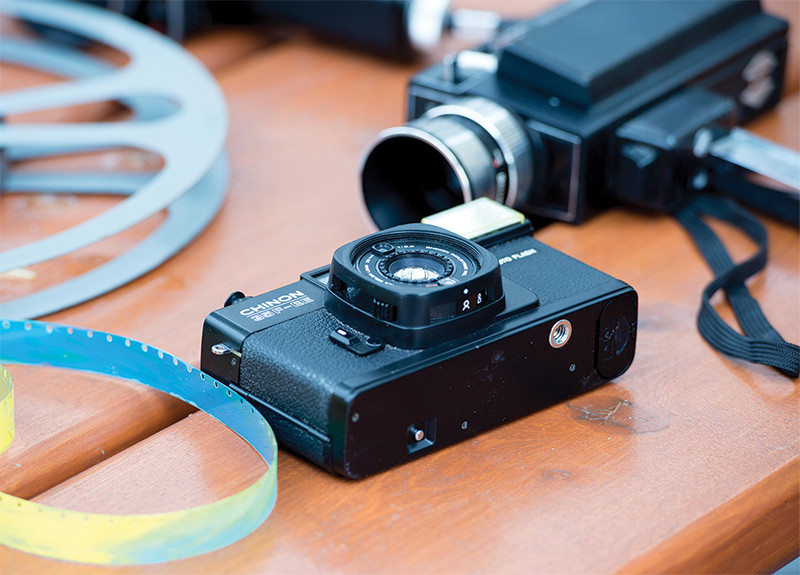
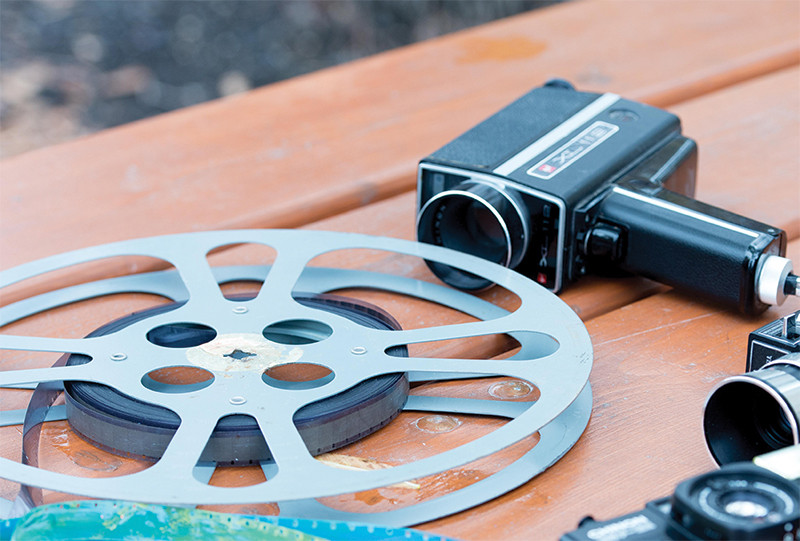
Published in Volume 74, Number 5 of The Uniter (October 3, 2019)

